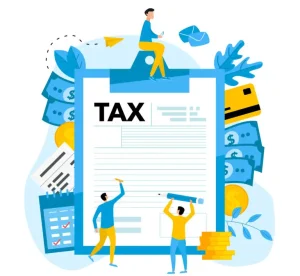 During the summer months, many states offer sales tax holidays for consumers buying back-to-school items. It’s a good time to learn about your sales tax obligations so you don’t make costly mistakes. Keep in mind that states can conduct a sales tax audit to see if there were proper tax collections and, in most states, there’s a lookback 3-year period for an audit.
During the summer months, many states offer sales tax holidays for consumers buying back-to-school items. It’s a good time to learn about your sales tax obligations so you don’t make costly mistakes. Keep in mind that states can conduct a sales tax audit to see if there were proper tax collections and, in most states, there’s a lookback 3-year period for an audit.
Here are 3 sales tax mistakes to avoid
1. Misunderstanding sales tax exemptions
What must you collect sales tax on? It depends on your location. Alaska, Delaware, Montana, New Hampshire, and Oregon have no state sales tax, although some of these states allow for local sales taxes. Where there are sales taxes, they can apply to a wide range of goods and services. If you’re a boutique, your sales are going to be subject to sales tax. If you’re an exterminator, your services may or may not be subject to sales tax.
Sales tax holidays provide exemptions for a limited period. For example, Connecticut’s “back-to-school” sales tax holiday from August 20 to 26, applies to clothing and footware up to $100. Florida’s “tool time” holiday from September 2 to 8 applies to work gloves ($25), flashlights and bags ($50), tool boxes ($75), and test equipment ($100).
There are also exemptions for products bought for resale and those purchased by tax-exempt organizations. But to put the exemptions for resellers and exempt organizations into practice, be sure to complete the proper documentation and retain this information in case of a sales tax audit.
2. Failing to collect sales tax on remote transactions
The U.S. Supreme Court settled the question of whether a seller in one state can be required to collect and remit sales tax on transactions in another state, by allowing this practice as long as there’s an exemption for “small sellers.” In effect, the usual “physical presence (nexus)” requirement for a state to exercise tax authority over a business has been replaced for sales tax purposes by an “economic nexus.”
So, whether or not you’re in a sales tax-free state, you may be required to collect sales tax on items or services provided to buyers in another state…unless you meet a small seller exemption. For example, if you are in Oregon and sell jewelry to a buyer in New Jersey, you have to collect sales tax on the transaction and remit it to New Jersey if your gross revenue from New Jersey sales exceeds $100,000 or there are 200 or more separate transaction in the current or prior calendar year.
States have different thresholds for sales tax obligations on remote transactions. The Streamlined Sales Tax Governing Board, Inc., has a state-by-law listing.
3. Failing to file returns
In addition to remitting sales tax, sellers must also file sales tax returns. The Federation of Tax Administrators has links to state sales tax forms. The returns usually are filed quarterly, but may be monthly or annually, depending on your location and volume of business activity.
Even if you don’t have sales in a particular period, you may still have to file a return. If you don’t you can be penalized. For example, in New York the penalties for late filing and failing to file a return are 10% of the tax due for the first month, plus 1% for each additional month or part, not exceeding 30% of the tax due, with a minimum penalty of $50.
Overlooking sales tax consequences when selling a business
If you sell the assets of a business, there may be sales tax consequences. Is your inventory subject to sales tax? You need to check state law.
The same question arises if you merge your business with another. Don’t assume that there are no sales taxes on the transaction.
Final thought
It’s always best to work with a knowledgeable tax professional to ensure you meet all sales tax obligations that apply to your business. If you use a facilitator, such as Shopify, to handle your sales taxes, your personal tax adviser should check that all requirements are met. If problems are detected from your efforts or when using a facilitator, have your professional look into any sales tax amnesty program—which come and go from time to time—that may be available to you to avoid interest and penalties (you’ll still have to pay back sales taxes).


